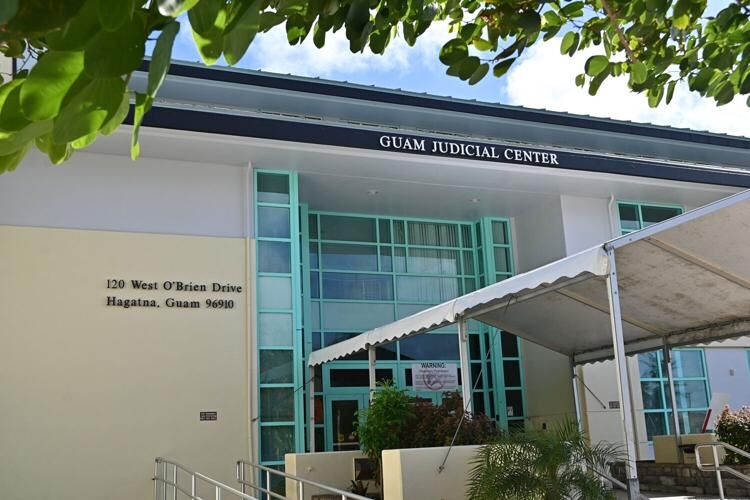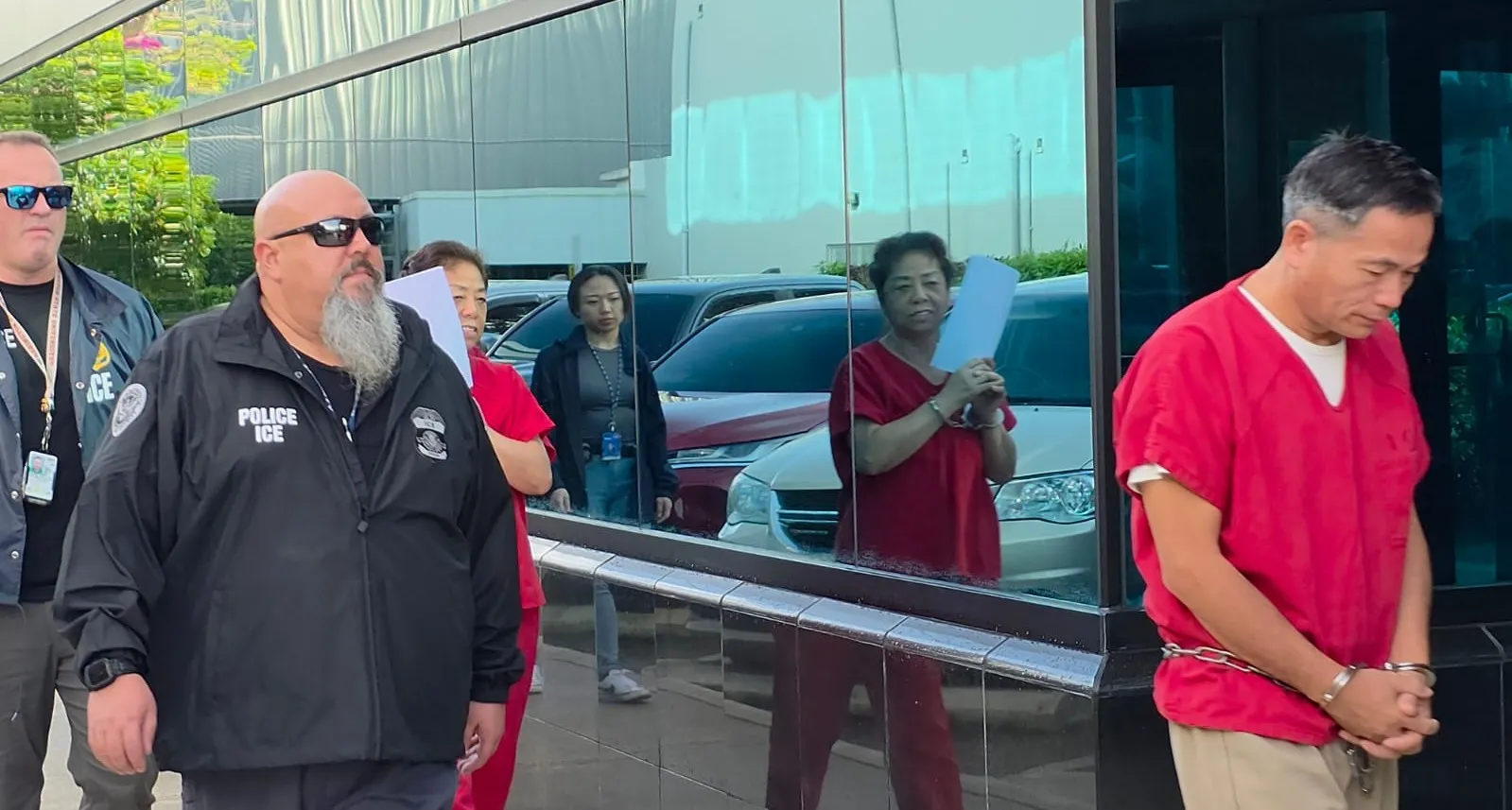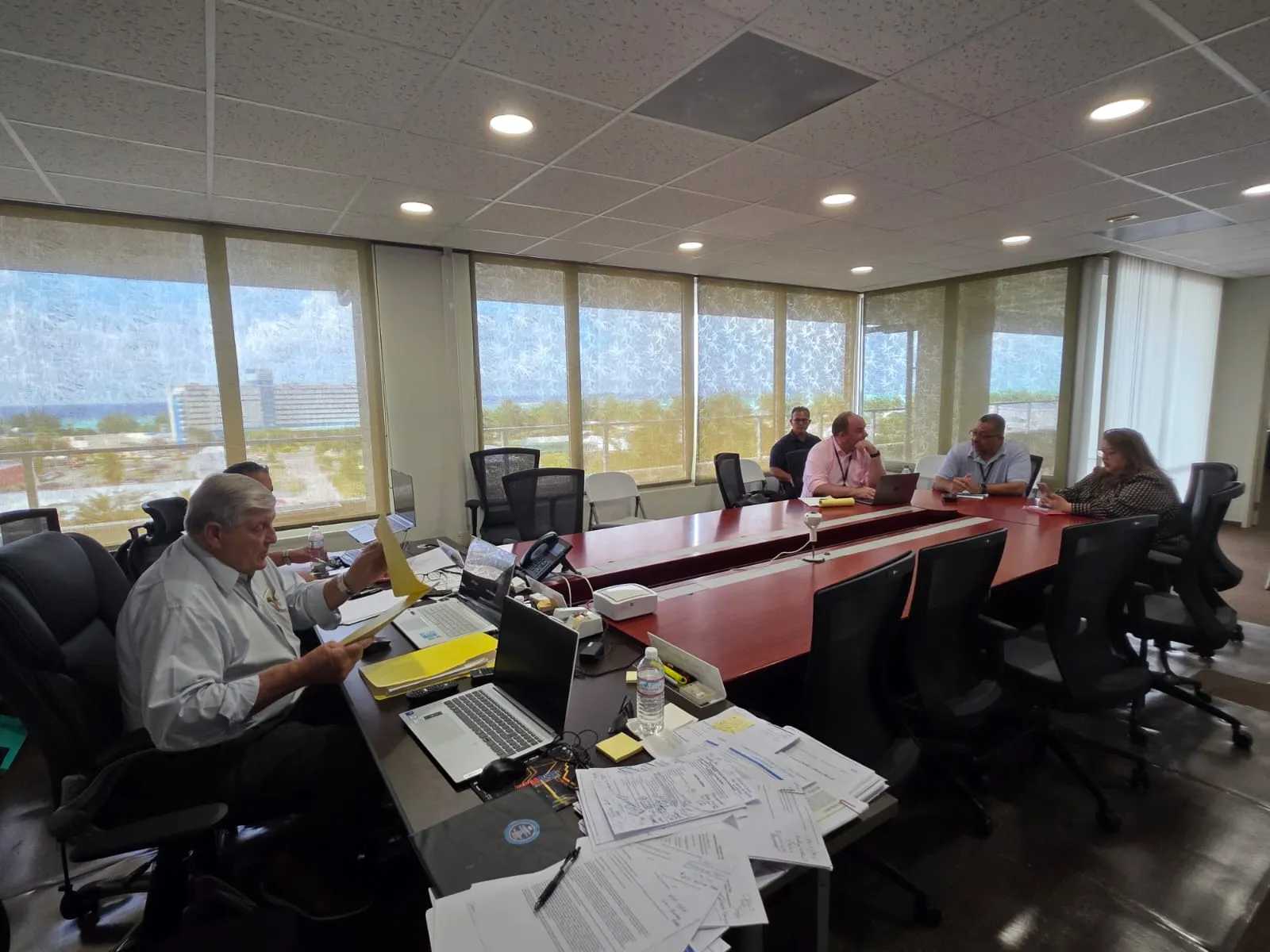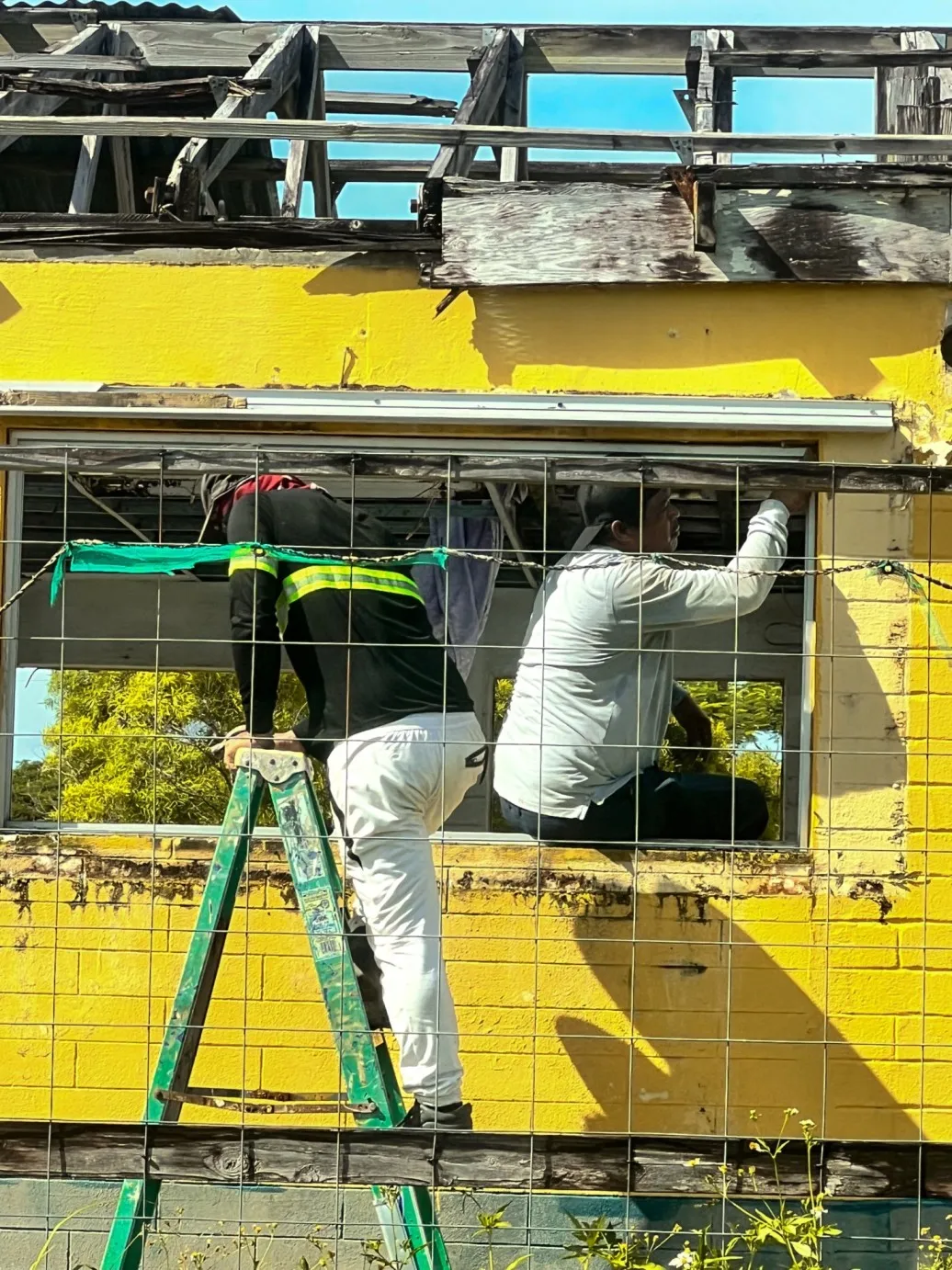HAGÅTÑA (The Guam Daily Post) — Supreme Court of Guam Chief Justice Robert Torres, together with Associate Justices F. Philip Carbullido and Katherine Maraman, heard oral arguments Wednesday in the appeal of the COVID-19 double pay class-action case filed by employees of the government of Guam.
Plaintiffs have sought no less than $100 million for double pay reportedly owed to them and their represented class during the pandemic.
The lower court dismissed the case in January, stating the plaintiffs failed to cure defects in an amended complaint and held that the claims are barred by sovereign immunity – the doctrine that a government cannot be sued or tried in its own court.
That resulted in the appeal at the Guam Supreme Court.
Attorney Joshua Walsh, representing the plaintiff class, began his argument Wednesday by saying that employees filed a case seeking overtime pay based on the pathway for direct court action as stated in law and the administrative grievance pathway, which led to some discussion over whether plaintiffs were seeking overtime or double pay.
Walsh said he didn’t believe there was a distinction.
“The reason we link the two (phrases), is because (Department of Administration Rule) 8.406, the personnel rule and regulation that we are on the sovereign immunity review today. That’s the one that lays out the specific personnel policy about emergency pay at the double rate during a public health emergency,” Walsh said.
He also pointed out the parties had never reached the point of developing a record regarding the merits of the case, because “the sovereign” has claimed that any case against it needs to run through administrative processes that may be futile.
The class-action lawsuit is nearly three years old, having been initially filed in October 2020. An amended complaint was filed in September 2021, but that was dismissed in May 2022. A second amended complaint was filed in July 2022, which was subsequently dismissed this year by Superior Court of Guam Judge Elyze Iriarte.
The lower court said there are two means to defeat GovGuam’s sovereign immunity: to pursue remedies through the Government Claims Act; or through judicial review of a final adverse action.
One plaintiff did begin the grievance process, which the DOA review board determined to be moot. While the plaintiffs asserted that this essentially exhausted administrative remedies and that further attempts to resolve the matter administratively would be futile, Iriarte said a final decision from the Civil Service Commission is needed to satisfy the adverse action argument for defeating sovereign immunity.
In addition, the “futility” argument is irrelevant without an express waiver of sovereign immunity, Iriarte said.
Sovereign immunity
On Wednesday, Carbullido noted the plaintiffs hadn’t cited any case in which sovereign immunity can be waived through the futility argument.
“We’ve asserted that it must be expressly waived and we’ve announced in prior decisions how that can be accomplished. And I don’t recall the futility argument in waiving sovereign immunity,” Carbullido said.
Walsh acknowledged he couldn’t find such a case coupling the futility doctrine with a sovereign immunity waiver. But he added that he believed the reason he couldn’t find reported cases is because the “sovereign setting out a futile administrative path” doesn’t exist.
“That exists in our territory in the COVID situation, in the limited facts of a Civil Service Commission that would have no hearings, and various employees who were being told by their directors, ‘We’re not weighing into this, we’re not going to advance your grievance complaint,'” Walsh said.
Carbullido expressed reservations, however, stating he isn’t readily accepting to chart a process “so perfunctory.” Walsh reiterated they are still in the pleading stage of the case and there isn’t anything yet on record that he could cite regarding the point on futility.
“What I have is a complaint with allegations that says the process is futile. And I am here, I understand, making an argument that wants to link the futility of the sovereign’s administrative pathway with the doctrine previously espoused by this court, that futile administrative pathways need not be exhausted. And I’m not standing on that alone, because the Guam Legislature clearly contemplates a world where employees should be able to sue directly for overtime,” Walsh said, referring to the portion of law that allows for court action for the payment of approved overtime.
“So the Legislature has already waived sovereign immunity for overtime. Now, does that overtime include COVID double pay? I understand that’s a question the court seems to have this morning. But my understanding of the way general rules of overtime work … it’s overtime. All the pay that the employees were owed extra – the hazard pay, port workers offloading a ship in off hours – that’s just overtime,” Walsh added.
‘Where is the record?’
Attorney Joseph McDonald represents the government in this case. He was asked at some point by the chief justice if he could consider any scenario where futility of administrative exhaustion could implicate a waiver of sovereign immunity.
McDonald said he could think of something fairly analogous: the DFS Guam case.
The DFS case is a lawsuit alleging misconduct over the awarding of a concession agreement to Lotte Duty Free Guam. McDonald said in that situation, the Office of Public Accountability, which hears procurement appeals, said it was “out” of that case.
“Now, that was going to be a futility. We don’t have that here. And let’s not forget, there needs to be developed some record – factual, not speculation – on why the CSC was not able to take this up,” McDonald said.
Maraman inquired whether the plaintiffs made a good point, in that the CSC wasn’t functioning and was part of the government shutdown during the pandemic. McDonald said he believed saying the CSC wasn’t going to cooperate would be enough under an express waiver.
“Where is the record? Where is the record where the CSC actually says, ‘We’re not going to do this’? There’s nothing like that here,” McDonald said.
The Guam Supreme Court took the matter under advisement.

The entrance to the Guam Judicial Center in Hagåtña is shown July 16, 2023.











